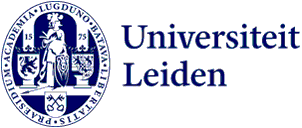Orange the World 2025
Film screening: 'VIVAS' by director Angélica Cruz Aguilar
- Date
- Tuesday 9 December 2025
- Time
- Explanation
- Registration starts at 16.45 hrs, room opens at 17.00 hrs.
- Address
-
Schouwburgstraat
Schouwburgstraat 2
2511 VA The Hague - Room
- 0.06
During Orange the World 2025, the documentary VIVAS is shown to highlight the fight against femicide and impunity in Latin America. The film is followed by a conversation with the filmmaker and other voices from the field.
Programme
- Welcome by Martín Di Marco and Sofia Forchieri, introducing Angélica Cruz Aguilar.
- Start screening
-
Q&A Moderated by Sofía, Q’s addressed to Angélica
'Vivas' trailer
Due to the selected cookie settings, we cannot show this video here.
Watch the video on the original website orAbout the film
VIVAS examines the feminist wave in Latin America in the face of rampant gender-based violence and femicide, particularly in Mexico. The film follows two mothers, Lorena and Karen, whose daughters, Fátima (age 12) and Renata (age 13), were murdered. These mothers engage in activism, demanding truth and justice in a context of structural impunity.
Mexico sees official counts of 10‑11 feminicides per day; VIVAS places these tragedies within the larger feminist mobilizations seeking recognition, redress, and systemic reform.
Speakers
Angélica Cruz Aguilar
Angélica Cruz Aguilar (b. 1988, Mexico City) is a journalist, filmmaker, radio host, and feminist activist. She holds a background in journalism and media studies and lives in Stuttgart, Germany.
As creator of VIVAS, she blends journalistic insight and personal investment to amplify stories of mothers challenging impunity in Mexico. In doing so, she helps bridge Latin American feminist movements with global audiences.
Sofía Forchieri
Sofía Forchieri is a PhD candidate at the Institute for Culture & History at Radboud University Nijmegen. She studied Comparative Literature at Goethe University Frankfurt (BA) and Utrecht University (RMA). Her research focuses on contemporary Latin American women’s writing, cultural memory studies, and decolonial feminisms, with particular interest in the relation between aesthetics, affects and politics. Sofía’s work has appeared in Memory Studies, Frame: Journal of Literary Studies, Journal of Perpetrator Research, and the edited volume Afectos y violencias en la cultura latinoamericana (Iberoamericana, 2022).
Sofía’s PhD project studies how contemporary women writers from Mexico, Chile, Argentina, Colombia, and Ecuador are imagining and remembering feminicide, the killing of women because of their gender. Through the notion of an “aesthetics of discomfort,” she aims to explore how the narrative frameworks and affective registers used by these writers open up new ways of remembering and understanding gender violence.
Sofía’s PhD project is supervised by Prof. Brigitte Adriaensen and Prof. Liedeke Plate.
Dr. Martín Hernán Di Marco
Dr. Martín Hernán Di Marco is an Assistant Professor at the Institute of Security and Global Affairs (Leiden University), specialising in violence perpetration with a strong focus on gender, crime, and desistance processes. His work centres on how micro-social networks, gender norms, and institutional logics shape trajectories of harm and disengagement. He has worked at the Institute of Criminology and Sociology of Law (Faculty of Law, University of Oslo), have been an Adjunct Professor at Emory University, and collaborated with the World Health Organization on projects related to external causes of mortality. He is currently on the board of the Working Group on Violence and Society and the Research Committee on Biography and Society of the International Sociological Association.
Relevance & Impact
Orange the World
By showing VIVAS during the Orange the World programming, we not only spotlight femicide in a global context, but also underscore how activism, memory, and mother-led resistance confront structural violence. The film invites reflection on transnational solidarity, accountability, and the lived consequences of systemic gender-based murder.
